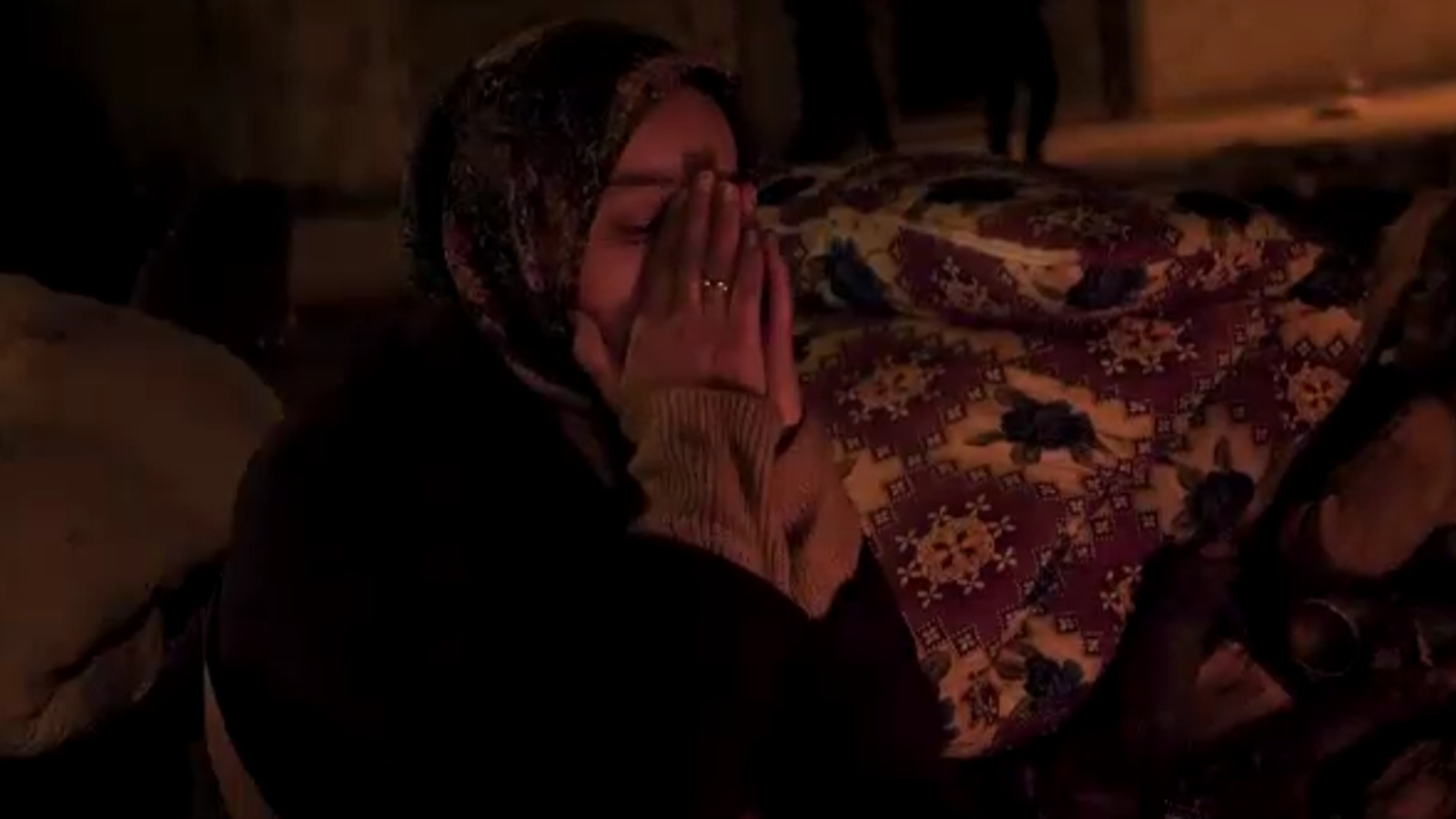Fatima Figen’s whole world has gone.
On a patch of wasteland in the broken city of Adiyaman, she tries to keep warm. As she huddles around a fire with her sister and brother-in-law, she lists the dead.
“There have been many losses from my husband’s family. His mother, father, siblings, brothers, sisters, sisters-in-law, nephews, nieces. Our family apartment collapsed. In the meantime, my uncle, his wife, their child, and their mother-in-law all lost their lives.”
Thirteen of the family were lost to the rubble. Ten children have been orphaned.
Earthquake latest as number of dead nears 36,000
She shows us a photo of their house as it looked before the earthquake. A treasured four-storey apartment filled by three generations.
Across the road now lies its twisted remains – a home-turned-tomb where her loved ones died.
All of them were victims of an earthquake which keeps playing in her mind.
“Even when we are standing, we still feel like we are shaking,” she says.
Amid the trauma, sleep is fleeting.
Around them, rescuers with diggers try to recover the dead, as the living do what they can to survive the nights when the temperature drops below freezing.
“In the first few days, we heard stories of people being taken out of the rubble but dying from cold,” Fatima says.
Be the first to get Breaking News
Install the Sky News app for free
The freezing weather isn’t the only challenge for survivors.
“There’s no work. We are bankrupt,” Fatima’s brother-in-law, Habib, says. He shows us the van where they take turns sleeping.
As the oldest male, Habib is now the main provider for the surviving relatives including the 10 orphans.
With their home and business destroyed, there is no future for them in Adiyaman.
Read more:
Final funerals held for 24 Turkish Cypriot children killed while on school volleyball trip
Miracles are few and far between as search for life becomes bid to honour the dead
Survivors urgently need faster aid to ‘save lives’ – as WHO says disaster ‘overwhelmed everyone’
“For me, I have no hope, it’s over. The city is finished,” he says.
People have left Adiyaman in droves.
Power is patchy and survivors tell us the water has been cut off or is contaminated.
In many streets, state-provided tent villages now take the place of houses.
Around the corner from Fatima, we meet Ayse Kaygusuz, who shows us the government-supplied shelter she shares with 10 others.
They have no toilets or showers. She explains people are defecating near where they prepare their food.
Disease is a huge worry.
“We can’t deal with an outbreak now. Those who survived will then die. Half of the city is dead,” she says.
Turkey is now doing what it can, but the need is overwhelming. For many here, the suffering feels endless.










